In our visits to secondary schools this year we are seeing a huge variety of target setting strategies. It is completely understandable that headteachers want a framework for knowing whether year groups are on-track to do well. This isn’t easy with re-scaled GCSEs dribbling on-stream and a hard accountability target – Progress 8 – that can only be calculated after national examination outcomes have been published.
Since the fortune of heads rests on their annual Progress 8 score, perhaps it isn’t surprising that data managers are being asked to forecast it. We heard of a school where the data manager had been asked to calculate expected Progress 8 for the Year 7 cohort!
Dataeducator is clearly encountering similar demands and has written a blog about options for forecasting Progress 8. We think it is so difficult to forecast that it isn’t worth trying (and DfE shouldn’t provide look-up tables to help schools do so). Forecasting accurately requires us to have some stability in the system; we are about to enter a period more unstable than ever before.
The KS4 regime will not be stable enough to make good Attainment 8 forecasts
GCSE grading is heading for a bumpy ride between now and 2019 as we gradually turn GCSEs graded from A*=8 to G=1 into new ones graded from 9 to 1, via an interim ‘patch’ which places new values (of 8.5, 7.0, 5.5, 4.0, 3.0, 2.0, 1.5, 1.0) onto the old A* to G grades.
If we assume that exam entry patterns do not change over this period and we make some reasonable guesses about how the new 9 to 1 grades might be set, then we think these re-scaling efforts will cause the national average A8 figure to fall substantially in 2017 before rising a little in 2018 and 2019. The word guesses here is important in understanding why DfE cannot provide KS2 to A8 look-up tables following similar lines: there is considerable uncertainty in our modelling approach because because Ofqual has only pre-announced certain new grade boundaries and has not yet agreed how upper grades will be set for subjects beyond English and maths.
Figure 1: Translation of old grades into new grades
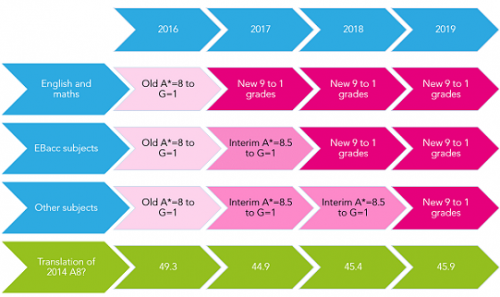
The KS2 regime has not been stable enough to make good Attainment 8 forecasts
The relationship between the 2015 GCSE results and Key Stage 2 fine grades may not be a good guide to the future. The current year 7 were subject to a different KS2 accountability regime than the 2015 Year 11. Because of this, creating predictions for future cohorts from last year’s GCSE results is best done only using the common elements of the KS2 (reading and maths tests), disregarding the rest.
And of course, going forward the 2016/7 Year 7 will be assessed on a completely different set of KS2 assessments. Even without the problem of introducing 1-9 grades, predictions created for them from the 2015/16 Year 11 data are unlikely to be very accurate.
We do not know how fast EBacc entry rates will rise
An important part of whether a pupil is likely to give a school a positive Progress 8 contribution is knowing if they are taking a similar mix of GCSE subjects, relative to other pupils with the same KS2 score. A good starting point here is to see what GCSE entries were like in 2015: it should be obvious that higher attainment students will need to take a more EBacc-aligned curriculum to stand a good chance of making a positive contribution.
Figure 2: GCSE subject entries in 2015 by KS2 fine grade
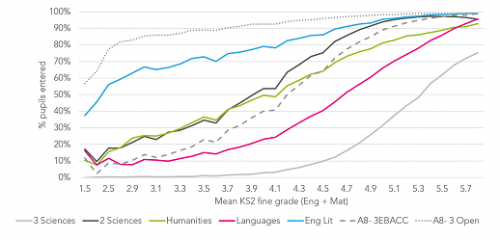
However, this is just a starting point because we know EBacc entry rates are rising, particularly for students with middling KS2 results. The trend in % EBacc slots filled will be a critical determinant of the target A8 score for each KS2 fine grade. It has risen by about 3 percentage points each year for the past two years; our best guess is that it will rise by much more in 2016 and 2017.
Figure 3: Increases in GCSE entry rates over time

So, good luck to school data managers who have been asked to forecast a year 7 pupil’s likely Attainment 8 or even Progress 8. Progress 8 may be the accountability measure, but it isn’t a useful target to work towards since a school’s score depends on the actions of the other schools as much as their own.
Instead, the best way to achieve the best Progress 8 score possible is to ask a series of questions for each pupil.
At KS4 subject choice time:
- Is this pupil taking the right subjects for them at GCSE?
- Is it reasonable to require them to take an EBacc-aligned mix of subjects?
- Are they filling as many slots as students with similar KS2?
Throughout KS3 and KS4:
- In each subject are they making good progress and are they on track to achieve good grades?
- What does my tracking or target-setting software tell me is reasonable achievement for this subject, given their KS2 fine grade?

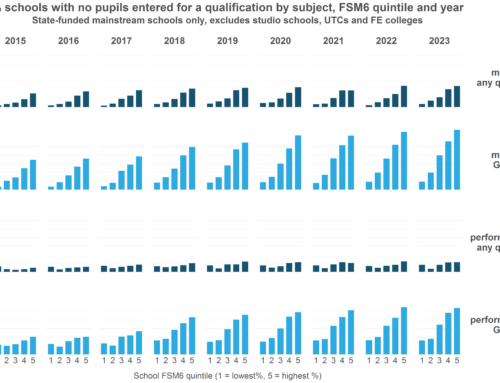
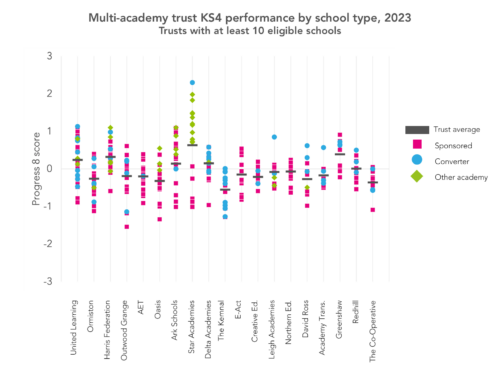
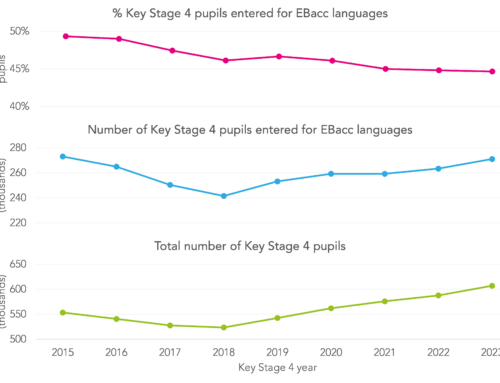
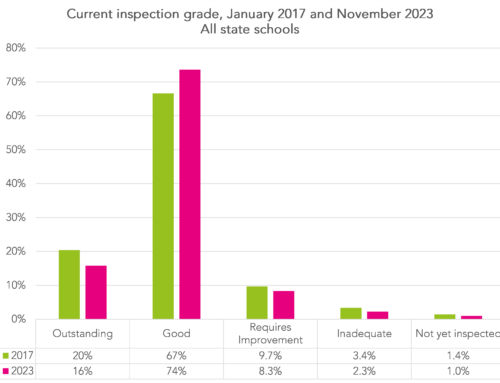
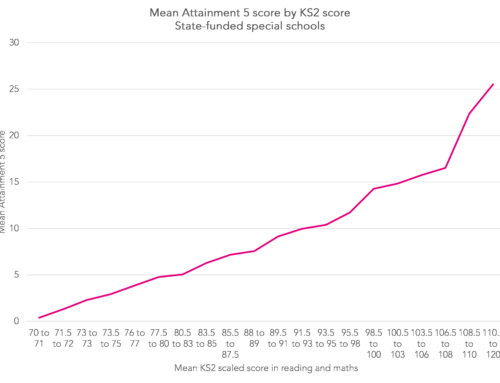
Hi Mike
Are the Progress 8 2015 figures available broken down in to different groups – for example boys/girls/ability/disadvantaged?
Will this be available for 2016 any time soon?
Mike I am a Head of PE and my students targets are set by using English and Maths KS2 results. How well does this correlate?